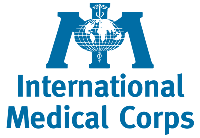 What do you regret about your medical training or specialty selection?
What do you regret about your medical training or specialty selection?
Anything?
One thing I regret is not taking advantage of the Masters degree in Health Administration program at my medical school. At the time, I was focused solely on medicine and on being a doctor. I didn’t think the business side of medicine was all that important. In fact, I didn’t consider the business side of medicine at all.
I regret that.
In a recent Medscape discussion physicians of different specialties discussed individual and collective regrets.
More than a few doctors regretted their choice of specialty. Pathologists seemed very unhappy with their choice because of the job market and the future of healthcare. An ER doctor regretted not choosing a surgical career. Several General Practitioners regretted choosing Primary Care.
However, many doctors were more concerned with what they did or didn’t get during their training. Gastroenterologists and ophthalmologists cited the lack of training in the business side of medicine as a gap to be filled.
Research has found that fewer than half of graduating medical students in the U.S. receives adequate training to understand healthcare system strategic approach and the economics of practicing medicine.
In a recent article in the New England Journal of Medicine two University of Michigan physicians recommended that healthcare policy be added to Medical School Curriculum.
“'Medical student and resident education has to include instruction on how healthcare systems function -- especially with the advent of complicated national healthcare reforms,’ University of Michigan physicians said.”
“Without education in health policy and the healthcare system, physicians are missing critical tools in their professional toolbox,” said co-author Matthew M. Davis, MD, associate professor at U-M in Pediatrics and Communicable Diseases, Internal Medicine and Public Policy.
The U-M Medical School has added an elective course in healthcare policy. Davis notes that it is enrolled to the maximum.
But is there time for this information to be integrated into medical school and post-graduate training, each already overflowing with information? How can this curriculum be integrated with clinical instruction and permeate educational training without jeopardizing other topics?
Three years after I graduated from medical school I went back to school and got a business degree. However, going back to school requires a huge investment of time and resources that many of us are already short on. Most of the skills needed to succeed in the corporate world are already inherent in a doctor or cultivated by the discipline, dedication, drive and desire it takes to become a doctor. The business degree alone isn’t going to put you on the fast track to success.
What is the best way for doctors to appreciate and understand the business side of medicine? It’s important for the success of a clinical doctor who needs to market and oversee a practice. It’s important as we move into the realm of changes due to health reform and doctors must take leadership roles and be able to effectively negotiate their future employment situations. It’s important for the success of a doctor who is working in the non-clinical world in the financial sector or in a marketing, sales or management role.
What do you think?
 By Pamela Wible MD
By Pamela Wible MD




 Post a Comment
Post a Comment




